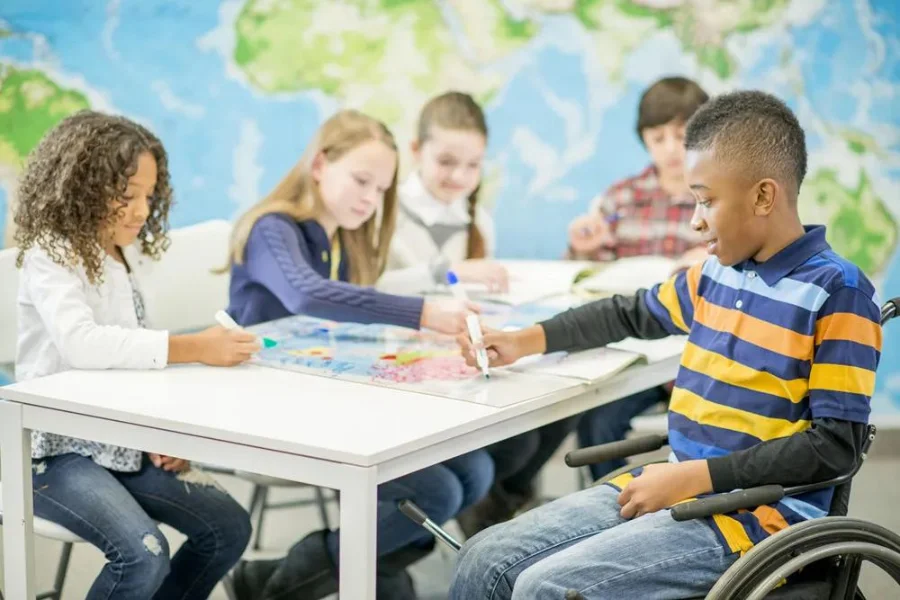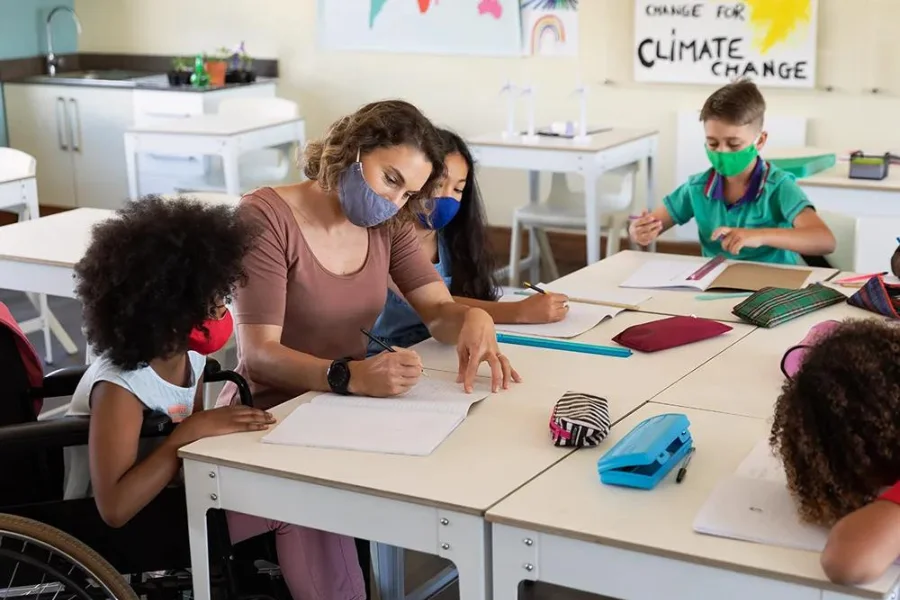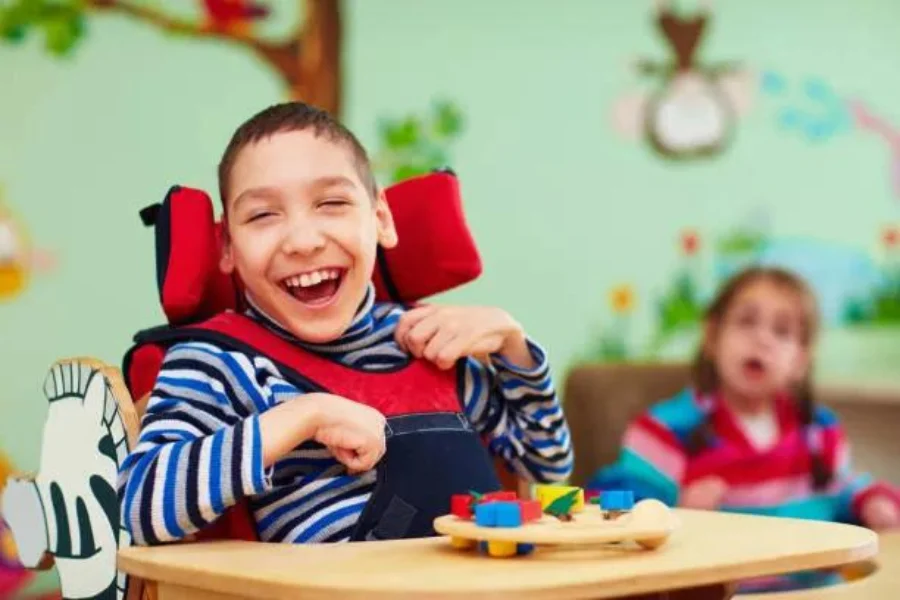
Source: istockphoto
The Growing Educational Industry has undergone a vast change in the last few years. Rising awareness about various learning disorders has paved the way for accepting Inclusive Education as an irreplaceable element of our educational setup. Making education accessible and available to all children irrespective of their backgrounds and learning styles is the motto of any educational institution.
This led to the development of innovative teaching Strategies in Inclusive Education, which are implemented with a vision to create a learning space for all children, welcoming them and instilling in them the confidence to believe that they can achieve their true potential despite the challenges they face.
What is Inclusive Education?
Strategies in Inclusive Education is the most effective teaching pedagogy that can help children of varied learning styles sit together in one classroom and acquire the same education in a manner that suits their learning style the most. Inclusive Education promotes the holistic growth of all children ensuring that each child has the potential achieves his potential to establish a good successful life for himself.
Here’s how Inclusive Education transforms classrooms:
Values Diversity
Emphasizing the uniqueness of each learner, Strategies in Inclusive Education seeks to remove obstacles that may hinder participation or learning, creating a welcoming space for all.
Focuses on Individual Needs
It prioritizes understanding each student’s unique characteristics, adjusting to accommodate different learning styles and developmental needs, and ensuring all students can learn and grow together.
Includes Traditionally Excluded Groups
By addressing barriers for students often left out such as children with disabilities or speakers of minority languages. Inclusive Education broadens opportunities for all, reinforcing that every student deserves a chance to succeed.
Using Strategies in Inclusive Education like adaptive learning materials, flexible teaching methods, and individualized support ensures each child can thrive and participate fully, promoting a sense of belonging and equality in the classroom.
For more details on the SEN Course Call/Whatsapp at +919321024137 / +919869866277
To download the brochure of the SEN Course, Click Here!

Source: pinterest
Inclusive Education Strategies
Inclusive Education Strategies are planned meticulously keeping in mind the varied needs of the children in the classroom their learning styles and their strengths. The strategies planned should help children achieve their learning goals along with their classmates in a normal mainstream classroom.
Here are some key strategies with examples:
Use Universal Design Principles
Setting up adaptable spaces can make a significant difference. For example, providing visual aids, such as posters with key concepts or illustrations, and using flexible seating options like floor cushions and desks of various heights can accommodate different comfort levels and learning styles. This approach helps students with physical disabilities or sensory preferences engage comfortably.
Know your Student’s Learning Style
Building relationships with each student helps teachers understand individual needs, strengths, and backgrounds. For instance, a teacher who knows that a student struggles with written tasks might provide oral response options, while another student may benefit from extra time on assignments. Recognizing these individual differences allows teachers to adapt their methods, creating a more supportive learning experience.
Use a Variety of Instructional Formats
Including multiple teaching methods can engage students with various learning preferences. For example, while some students benefit from interactive group work to understand concepts, others may prefer individual hands-on activities. Making use of multi-modal techniques such as drama, skits, and storytelling helps children explore their imagination skills enabling them to learn better.
Develop a Behaviour Management Plan
The educator should lay down strong ground rules clearly to all the children to foster a happy inclusive classroom. Implementing an exclusive behavior management plan will help children to understand why a certain behavior is expected out of them which makes them empathize with their classmates and the challenges that they face.
Establishing simple rules such as taking turns, and speaking only when you raise your hands helps to maintain discipline and decorum in class. Similarly making a reward chart will help children celebrate their small victories lifting their morale and self-esteem.
These strategies help build a sense of community, enabling all students to thrive academically and socially.
For more details on the SEN Course Call/Whatsapp at +919321024137 / +919869866277
To download the brochure of the SEN Course, Click Here!

Source: wockhardthospitals
Special Needs Education Courses Online
Special Needs Education Courses Online are the leading top-notch job certifying programs that have enabled educators to embark on the professional field of Special Education successfully. The course equips trainees with the desired knowledge and practical understanding of how to handle a real classroom situation with confidence and efficiency.
Helping the educators create a conducive learning atmosphere for all children giving each child a fair chance to receive quality education is taught in-depth in this course. Vidhyanidhi Education Society (Govt. Regd.) offers a Special Needs Education Course tailored to meet these goals and prepare teachers to be confident and capable in inclusive environments.
Key topics covered in these courses include:
Inclusive Education
Focuses on providing strategies to create classrooms where all students, regardless of their abilities or disabilities, can learn together. This approach promotes a learning environment that supports and values each child’s unique strengths and challenges.
Foundation of Special and Inclusive Education
Provides a solid grounding in special education principles, helping educators understand disability and accessibility, and apply them effectively.
Child Development and Learning
Focuses on understanding stages of typical and atypical child development, giving educators insights into the psychological factors that influence learning. This foundation is critical for supporting children with special needs effectively.
Exclusive Reviewing Methods
Teachers learn to assess children which helps to determine their strengths that can be harnessed well to achieve the desired learning outcomes. Also, assessments will help to understand where the child needs help and improvement. Tracking the progress regularly and implementing the modified teaching strategies to suit each child’s needs is a significant part of the curriculum.
One must understand that being a Special Educator is a challenging task that requires tonnes of patience and devoted dedication. By pursuing a Special Needs Education Courses Online Mode program trainees gain a detailed understanding of the ABCs of Special Education and ways of how they can make a positive difference in the lives of Special Children helping them be a fruitful part of the community leading a wholesome successful life.
Transform lives with inclusive strategies! Enrol in Vidhyanidhi Education Society’s SEN Course!
For more details on the SEN Course Call/Whatsapp at +919321024137 / +919869866277
To download the brochure of the SEN Course, Click Here!
FAQs
What is a Special Educator Course?
A Special Educator Course equips teachers with skills to support children with disabilities in inclusive settings. Vidhyanidhi Education Society offers a recognized course.
Which Diploma is best for Special Education?
The Diploma in Special Education offered by Institutions is ideal, covering essential skills, inclusive strategies, and practical knowledge for effective teaching.
What is the Duration of the Special Needs Education Course?
The Special Needs Education Course duration at Vidhyanidhi Education Society typically spans 1 year, depending on the program format chosen.



